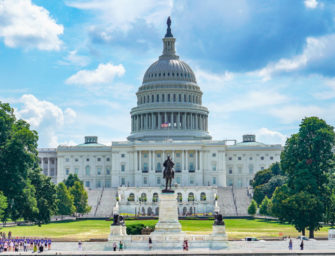#AGU21 highlights from Tuesday, Dec. 14
Highlights from Tuesday, December 14:
Day 2 at #AGU21 was packed full of research for fostering a sustainable environment to support future generations. While sessions run online and in-person this week, remember that you can see all the sessions later, on your own time.
Eos coverage of today’s #AGU21 events:
- Midwest Livestock Operations Linked to Rise in Ammonia Pollution. For the first time, scientists have linked high-density animal operations in the U.S. Midwest to rising air pollution from ammonia, suggesting a need for increased regulation from the EPA.
- Hostile Workplaces Drive Minorities from the Geosciences. A pipeline of minoritized groups doesn’t ensure retention, a survey finds.
- Hundreds of Volcanic Explosions Detected Underwater at Kīlauea. The explosions, identified during the 2018 eruption phase, offer a clear acoustic signal that researchers could use to measure ocean properties.
#AGU21 in the news:
- Climate change has destabilized the Earth’s poles, putting the rest of the planet in peril. Washington Post, 14 Dec. New research shows how rising temperatures have irreversibly altered both the Arctic and Antarctic. Ripple effects will be felt around the globe.
- NASA’s Parker Solar Probe becomes first spacecraft to ‘touch’ the sun. CNN, 14 Dec. The Parker Solar Probe has successfully flown through the sun’s corona, or upper atmosphere, to sample particles and our star’s magnetic fields.
- US study: Record highs, rain and beaver damage in Arctic. Associated Press, 14 Dec. The Arctic continues to deteriorate from global warming, not setting as many records this year as in the past, but still changing so rapidly that federal scientists call it alarming in their annual Arctic report card.
- We’re Turning the Arctic Into a Trash Dump, Gizmodo, 14 Dec. This year’s Arctic Report Card shows that as the region becomes busier, it’s also becoming more polluted.
Some highlights from Day 2:
- John Kerry, the U.S.’s first Special Presidential Envoy for Climate, spoke about the grand transformation to address climate change during a plenary lecture.
- Dr. Eric Lander called for ‘ferocious innovation’ to address the climate crisis during a plenary lecture.
- Dr. Jeffrey Sachs discussed policy frameworks for decarbonization during the Frontiers of Geophysics Lecture.
- NOAA scientists participated in a press conference releasing the NOAA Artic Report Card 2021, an annual report diving into the pressing issues affecting ecosystems, indigenous societies, and natural resources in the region.
- NASA scientists revealed that their spacecraft entered the Sun’s corona for the first time during a press conference about their Parker Solar Probe.
What to watch for tomorrow, December 15:
- A plenary with Sekou Andrews, one of the most successful spoken poets in the world.
- NOAA explains the extreme events of 2020 from a climate perspective.



There are no comments
Add yours